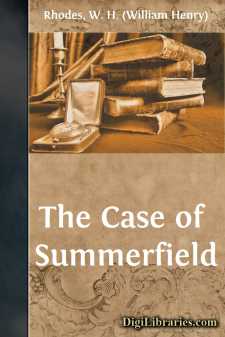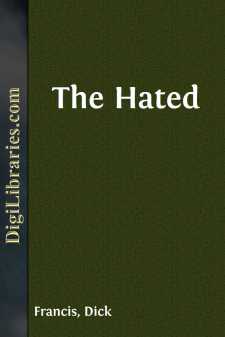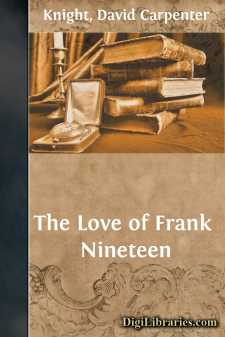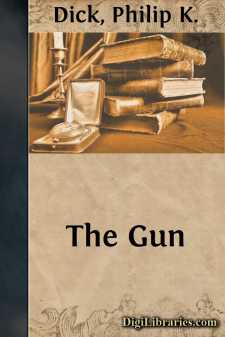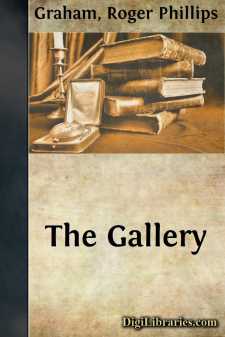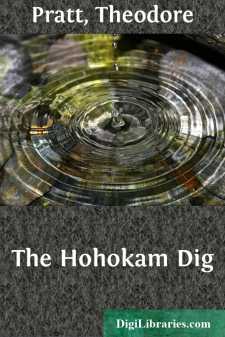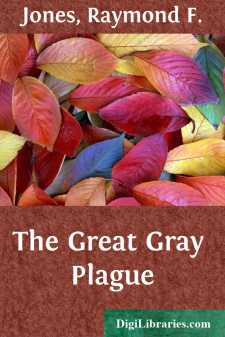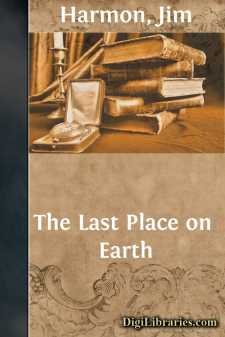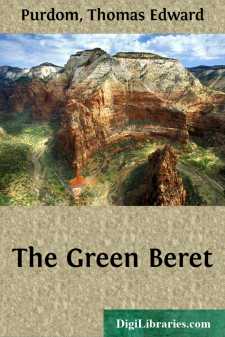Categories
- Antiques & Collectibles 13
- Architecture 36
- Art 48
- Bibles 22
- Biography & Autobiography 813
- Body, Mind & Spirit 142
- Business & Economics 28
- Children's Books 15
- Children's Fiction 12
- Computers 4
- Cooking 94
- Crafts & Hobbies 4
- Drama 346
- Education 46
- Family & Relationships 57
- Fiction 11828
- Games 19
- Gardening 17
- Health & Fitness 34
- History 1377
- House & Home 1
- Humor 147
- Juvenile Fiction 1873
- Juvenile Nonfiction 202
- Language Arts & Disciplines 88
- Law 16
- Literary Collections 686
- Literary Criticism 179
- Mathematics 13
- Medical 41
- Music 40
- Nature 179
- Non-Classifiable 1768
- Performing Arts 7
- Periodicals 1453
- Philosophy 64
- Photography 2
- Poetry 896
- Political Science 203
- Psychology 42
- Reference 154
- Religion 513
- Science 126
- Self-Help 84
- Social Science 81
- Sports & Recreation 34
- Study Aids 3
- Technology & Engineering 59
- Transportation 23
- Travel 463
- True Crime 29
The Case of Summerfield
Categories:
Description:
Excerpt
The greatest master of the short story our country has known found his inspiration and produced his best work in California. It is now nearly forty years since "The Luck of Roaring Camp" appeared, and a line of successors, more or less worthy, have been following along the trail blazed by Bret Harte. They have given us matter of many kinds, realistic, romantic, tragic, humorous, weird. In this mass of material much that was good has been lost. The columns of newspapers swallowed some; weeklies, that lived for a brief day, carried others to the grave with them. Now and then chance or design interposed, and some fragment of value was not allowed to perish. It is matter for congratulation that the story in this volume was one of those saved from oblivion.
In 1871 a San Francisco paper published a tale entitled The Case of Summerfield. The author concealed himself under the name of "Caxton," a pseudonym unknown at the time. The story made an immediate impression, and the remote little world by the Golden Gate was shaken into startled and enquiring astonishment. Wherever people met, The Case of Summerfield was on men's tongues. Was Caxton's contention possible? Was it true that, by the use of potassium, water could be set on fire, and that any one possessing this baneful secret could destroy the world? The plausibility with which the idea was presented, the bare directness of the style, added to its convincing power. It sounded too real to be invention, was told with too frank a simplicity to be all imagination. People could not decide where truth and fiction blended, and the name of Caxton leaped into local fame.
The author of the tale was a lawyer, W. H. Rhodes, a man of standing and ability, interested in scientific research. He had written little; what time he had been able to spare from his work, had been given to studies in chemistry whence he had drawn the inspiration for such stories as The Case of Summerfield. With him the writing of fiction was a pastime, not a profession. He wrote because he wanted to, from the urgence of an idea pressing for utterance, not from the more imperious necessity of keeping the pot boiling and of there being a roof against the rain. Literary creation was to him a rest, a matter of holiday in the daily round of a man's labor to provide for his own.
His output was small. One slender volume contains all he wrote: a few poems, half a dozen stories. In all of these we can feel the spell exercised over him by the uncanny, the terrible, the weirdly grotesque. His imagination played round those subjects of fantastic horror which had so potent an attraction for Fitz James O'Brien, the writer whom he most resembles. There was something of Poe's cold pleasure in dissecting the abnormally horrible in "The Story of John Pollexfen," the photographer, who, in order to discover a certain kind of lens, experimented with living eyes. His cat and dog each lost an eye, and finally a young girl was found willing to sell one of hers that she might have money to help her lover. But none of the other stories shows the originality and impressively realistic tone which distinguish The Case of Summerfield. In this he achieved the successful combination of audacity of theme with a fitting incisiveness of style. It alone rises above the level of the merely ingenious and clever; it alone of his work was worth preserving.
Scattered through the ranks of writers, part of whose profession is a continuous, unflagging output, are these "one story men," who, in some propitious moment, when the powers of brain and heart are intensified by a rare and happy alchemy, produce a single masterpiece. The vision and the dream have once been theirs, and, though they may never again return, the product of the glowing moment is ours to rejoice in and wonder at....


